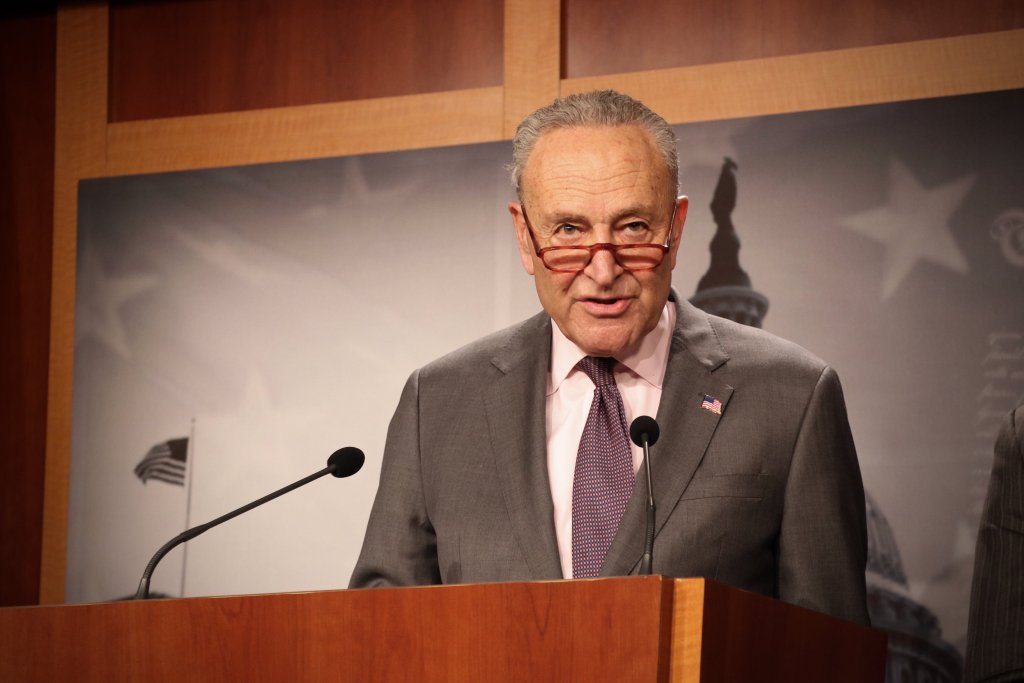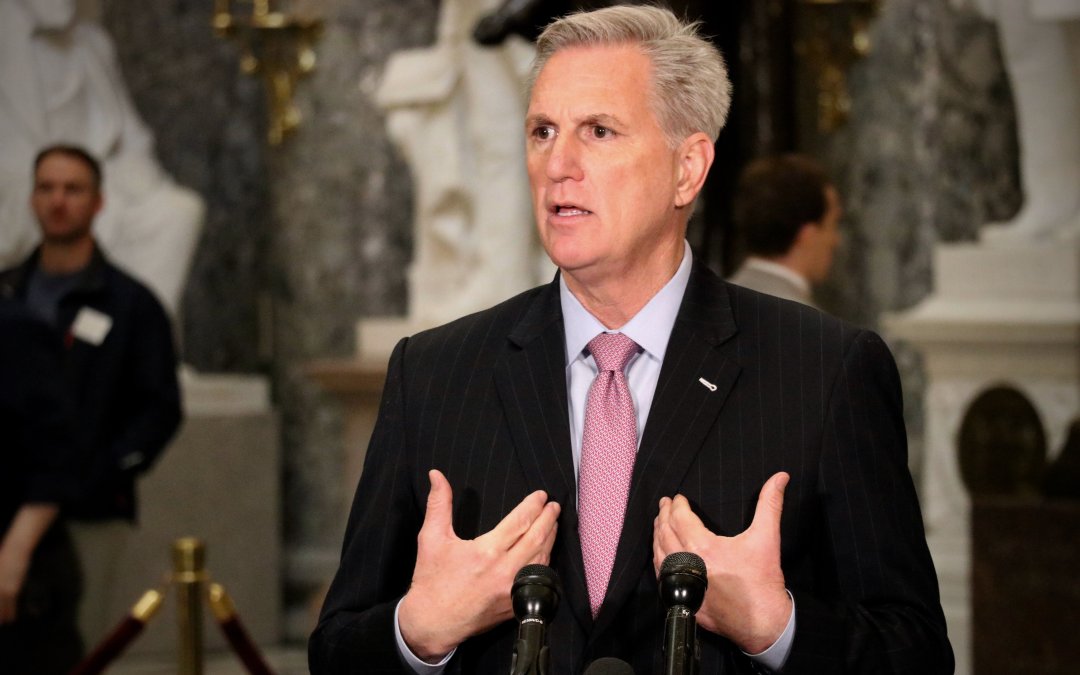WASHINGTON – House Republicans have revitalized a plan to eliminate the IRS and replace it with a mammoth sales tax. This time, it may even get a vote in Congress.
The Fair Tax Act, introduced this month by Rep. Buddy Carter (R-Ga.), breathes new life into a 25-year-old idea to eliminate the IRS and “simplify the tax code,” as proponents see it. A 30% tax on all spending would replace income, estate and Social Security taxes.
Democrats argue that the bill would be a detrimental hit to middle- and lower-class families who spend a higher percentage of their income than the upper-class. Food, homes, cars and clothing – all necessities which, if taxed at 30%, would result in a tax hike on 90% of Americans, according to House Minority Leader Hakeem Jeffries (D-N.Y.).
“The so-called ‘Fair’ Tax Act is unfair, unconscionable and un-American,” said Jeffries at a joint press conference with Senate Majority Leader Chuck Schumer (D-N.Y.) on Wednesday.
“[Fair Tax] is another example of the extremist agenda that Republicans are trying to jam down the throats of the American people.”

Senate Majority Leader Chuck Schumer (D-N.Y.) said to not underestimate the power of MAGA Republicans over McCarthy (Brennan Leach, MNS)
The measure was originally introduced by Rep. John Linder (R-Ga.) in 1999, and has been revitalized in several sessions of Congress. It was brought up during testimony in numerous House committees over the years, but has yet to reach the floor for a vote.
In the 118th Congress, the bill may finally have its chance.
Speaker Kevin McCarthy (D-Calif.) guaranteed that Fair Tax would receive a hearing in committee amid leadership negotiations, appeasing some far-right members of his caucus. But in response to questions about whether he supported the bill, McCarthy answered with a simple “no.”
On Wednesday evening, Rep. Beth Van Duyne (R-Texas) told Medill News Service that “McCarthy is all for simplifying the tax code.”
“Our IRS has grown to the point where it’s been used against a lot of working families. I think we’re all in favor of simplifying things. What the vehicle looks like, we’re not sure yet,” she said.
Whether Fair Tax is the vehicle of choice is yet to be seen, but that McCarthy has pledged to bring the bill to committee at all could be an indicator of where power lies within the House Republicans caucus, according to Schumer.
“Everyone thought Leader McCarthy would never go along with MAGA Republicans as he ran for speaker. Now he is still committed to them – still – to put this bill before committee,” said Schumer. “I don’t underestimate the power over McCarthy of these extreme MAGA Republicans.”


